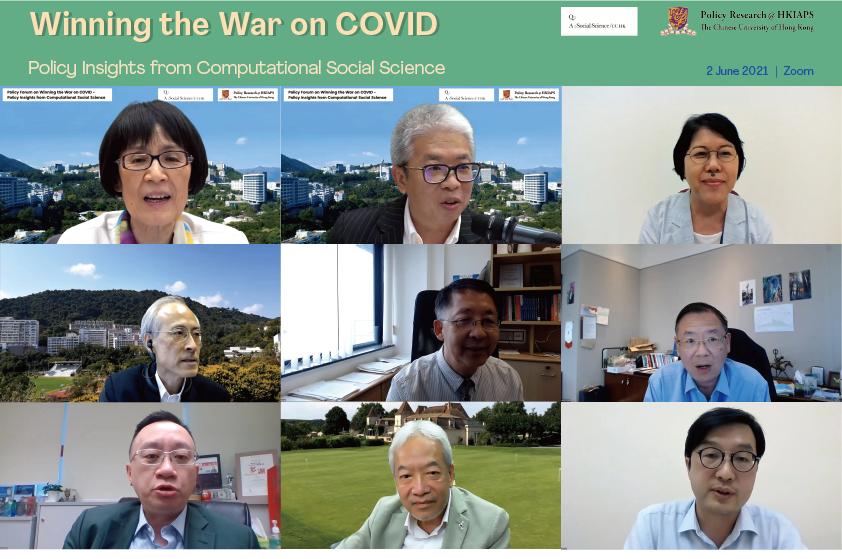
|
| Forum |
|
|
|
Keynote Speaker |
|
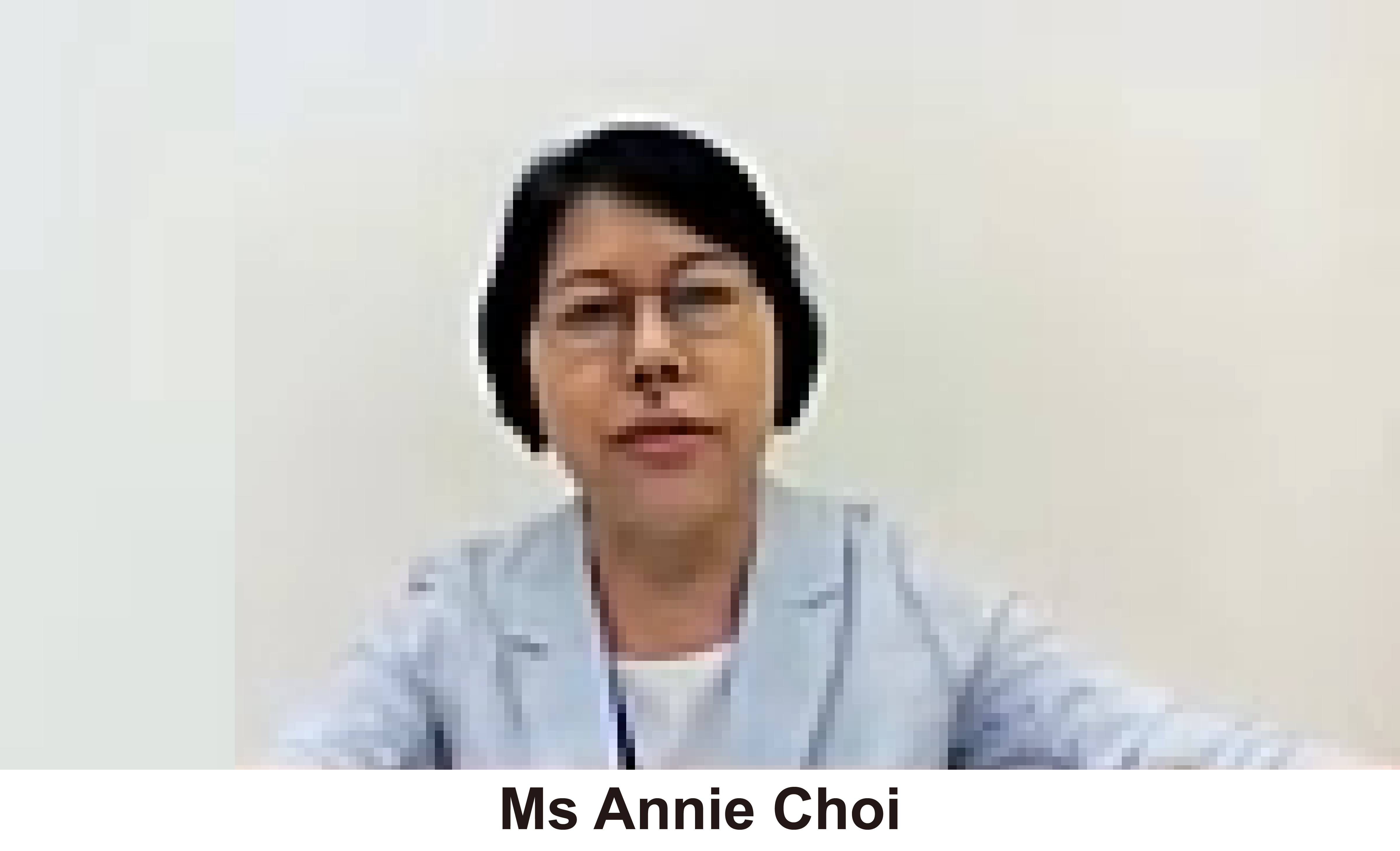 Ms Annie Choi
Ms Annie Choi
Permanent Secretary, Innovation and Technology Bureau, HKSAR Government | |
|
Moderator |
|
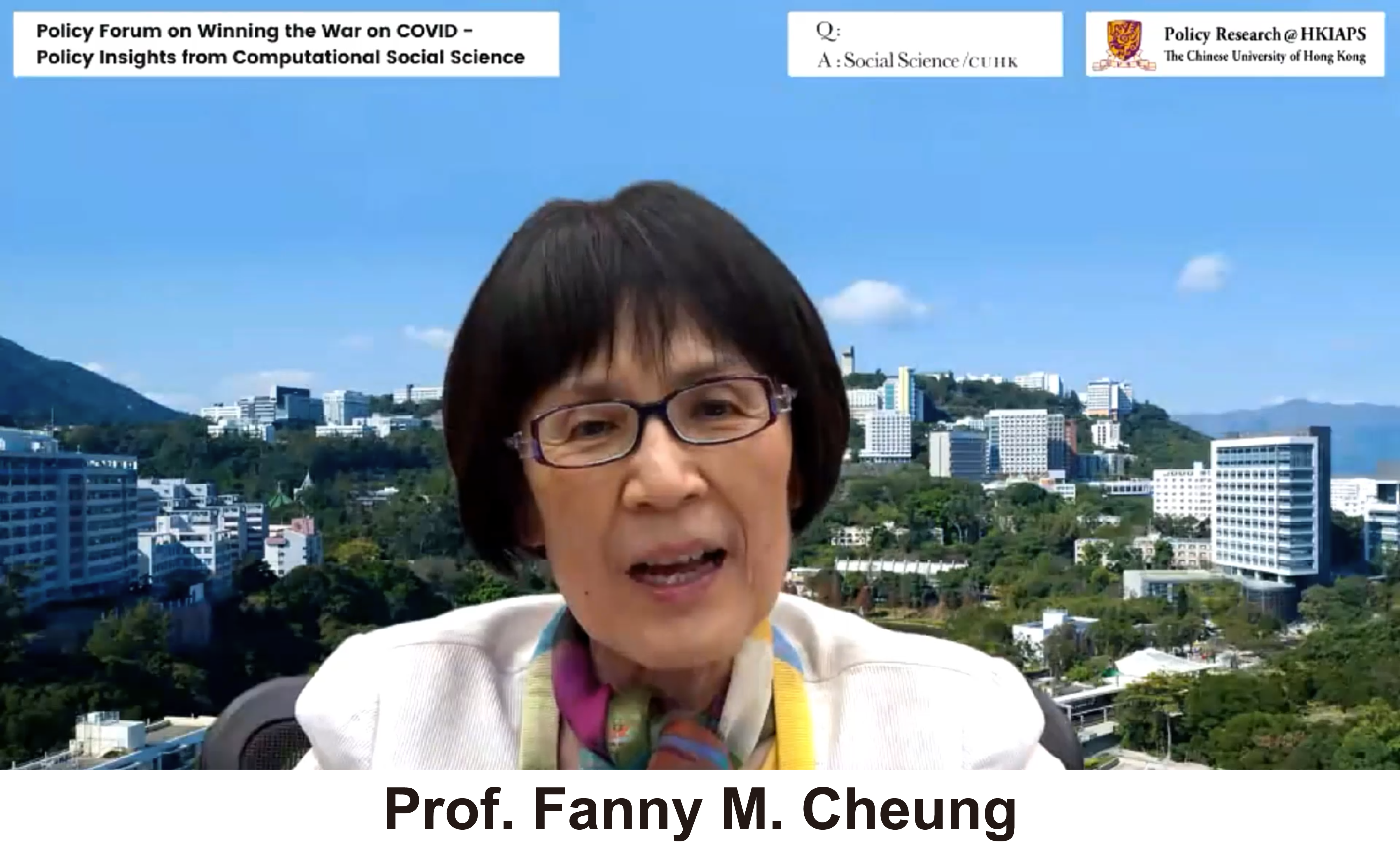 Prof. Fanny M. Cheung
Prof. Fanny M. Cheung
Convenor, Policy Research @ HKIAPS, CUHK | |
|
Speakers |
|
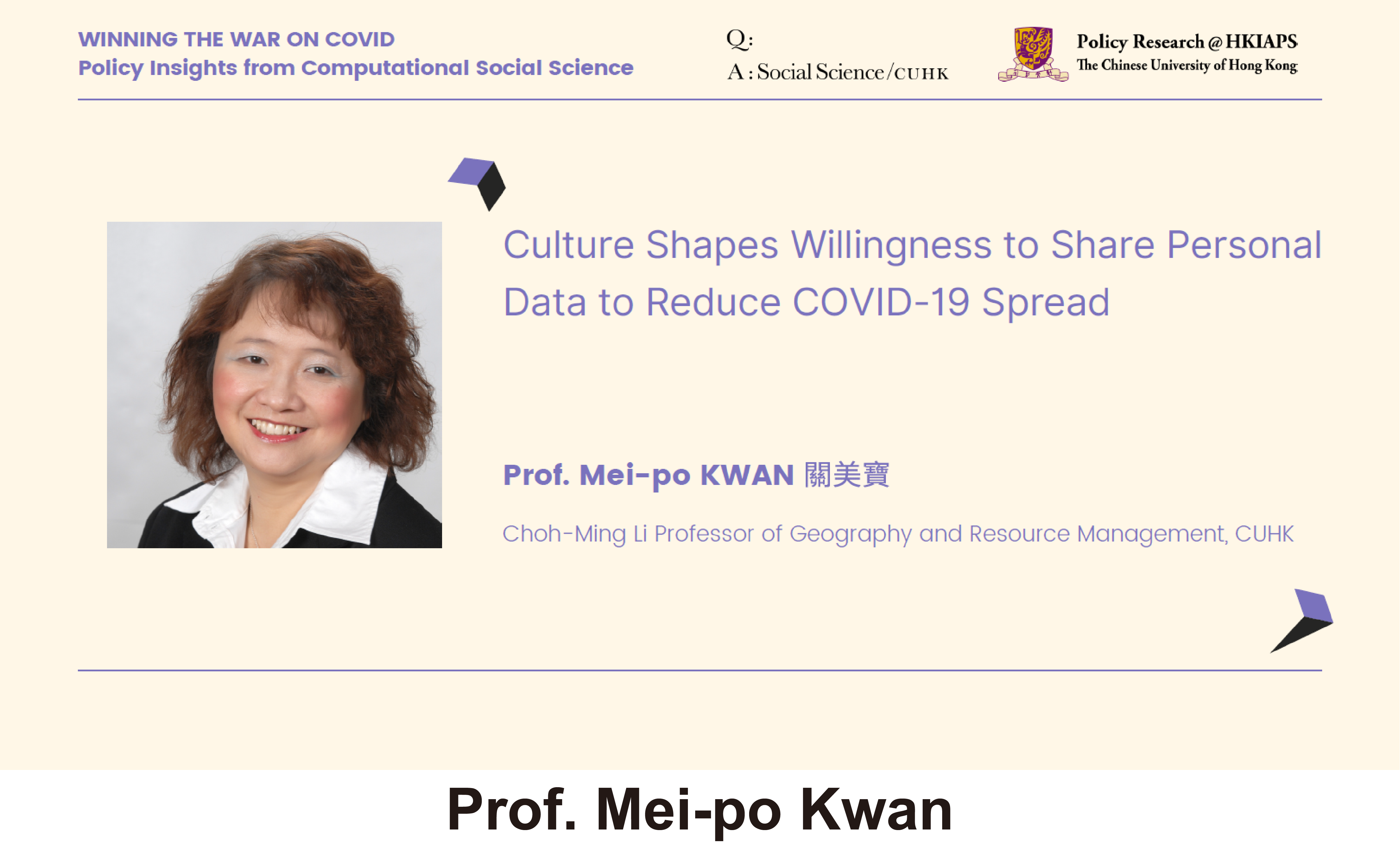 Geospatial Technologies for COVID-19 Interventions and People’s Willingness to Share Personal Data to Reduce COVID-19 Spread
Geospatial Technologies for COVID-19 Interventions and People’s Willingness to Share Personal Data to Reduce COVID-19 SpreadProf. Mei-po Kwan Choh-Ming Li Professor, Geography and Resource Management, CUHK | |
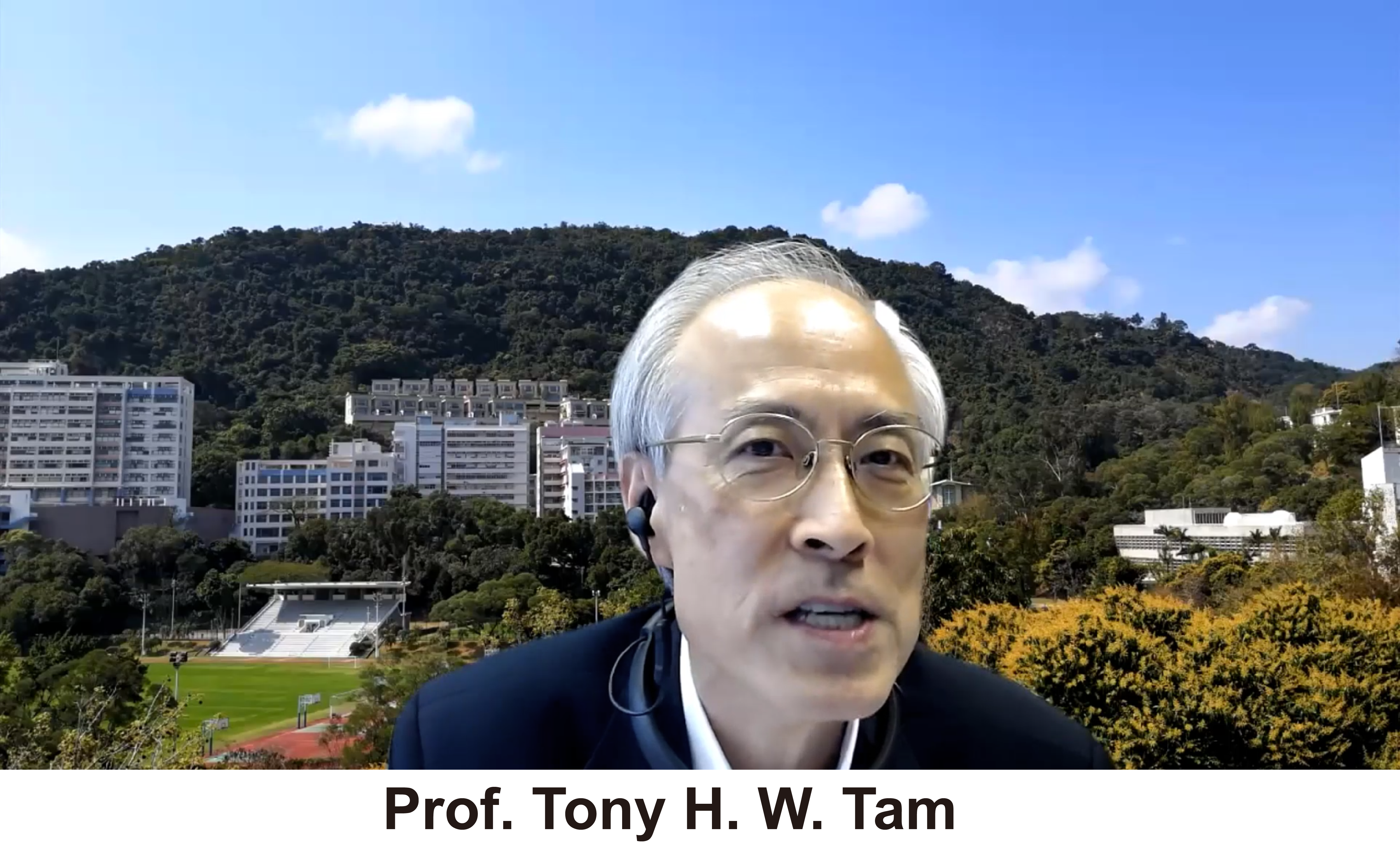 Optimizing Nonpharmaceutical Interventions in Hong Kong
Optimizing Nonpharmaceutical Interventions in Hong KongProf. Tony H. W. Tam Chairman and Professor, Department of Sociology, CUHK | |
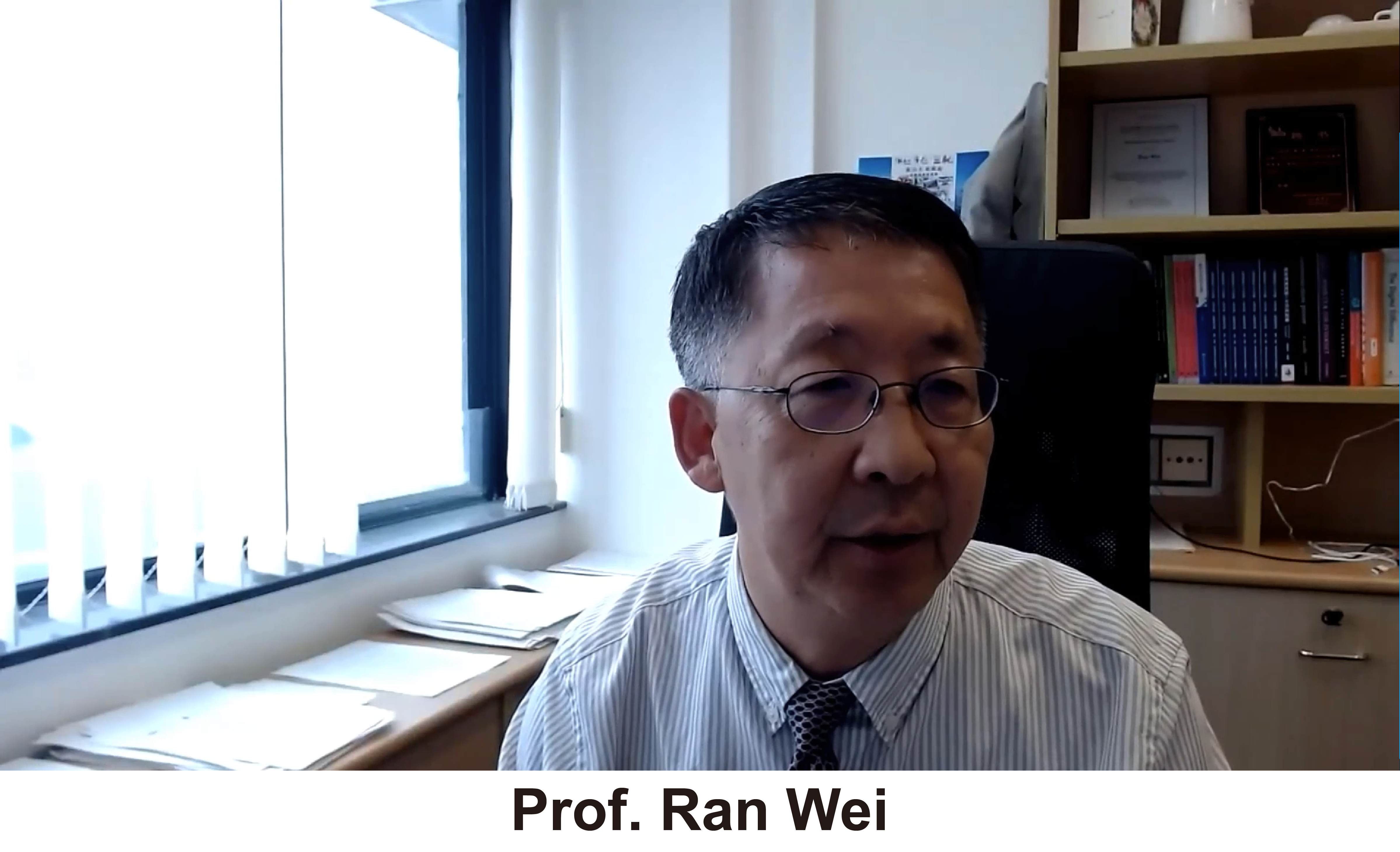 Containing the Spread of COVID-19 Misinformation on Social Media: What We Know and What We Need to Know
Containing the Spread of COVID-19 Misinformation on Social Media: What We Know and What We Need to KnowProf. Ran Wei Professor, School of Journalism and Communication, CUHK | |
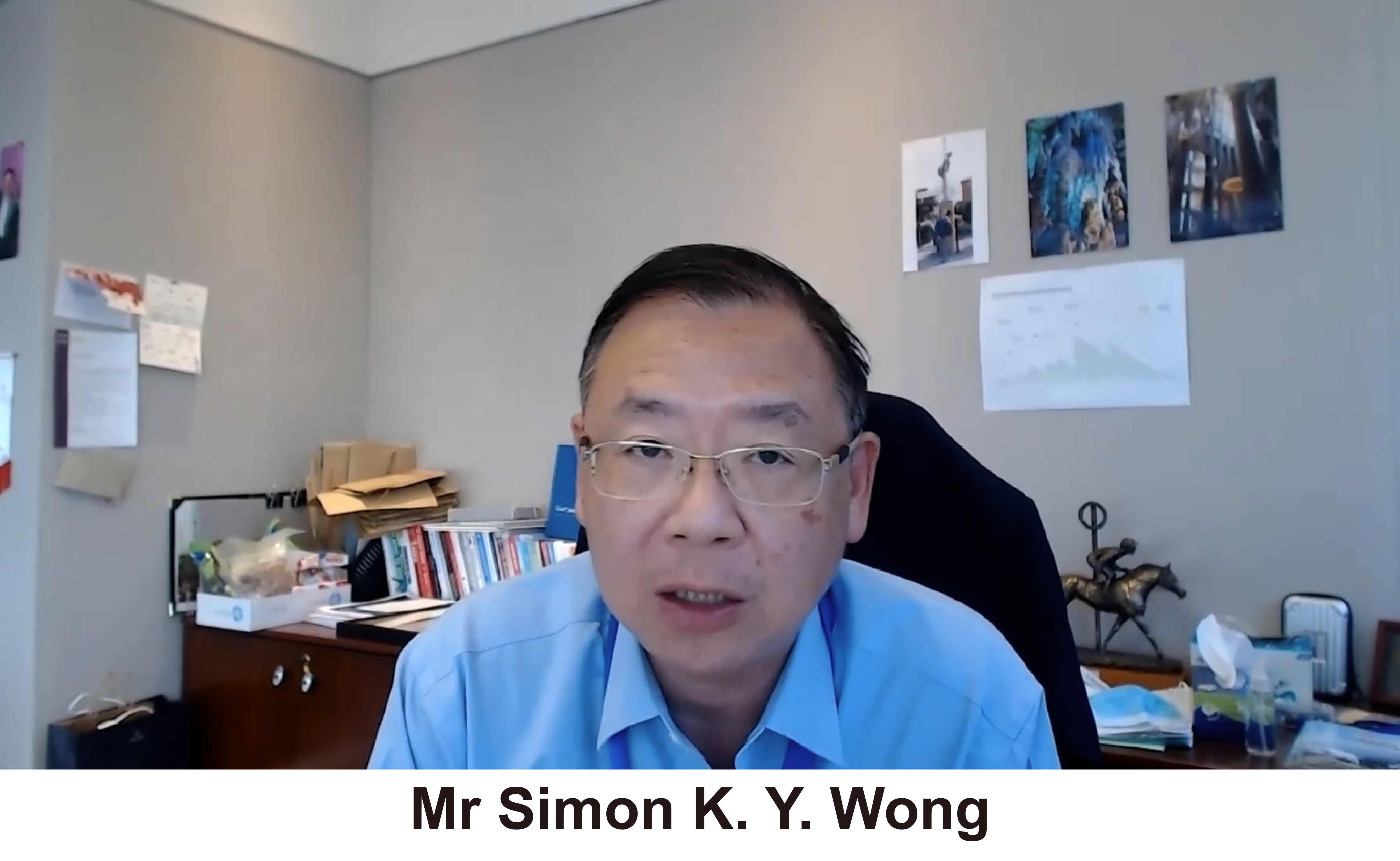 Mr Simon K. Y. Wong
Mr Simon K. Y. Wong
Chief Executive Officer, Logistics and Supply Chain MultiTech R&D Centre (LSCM) | |
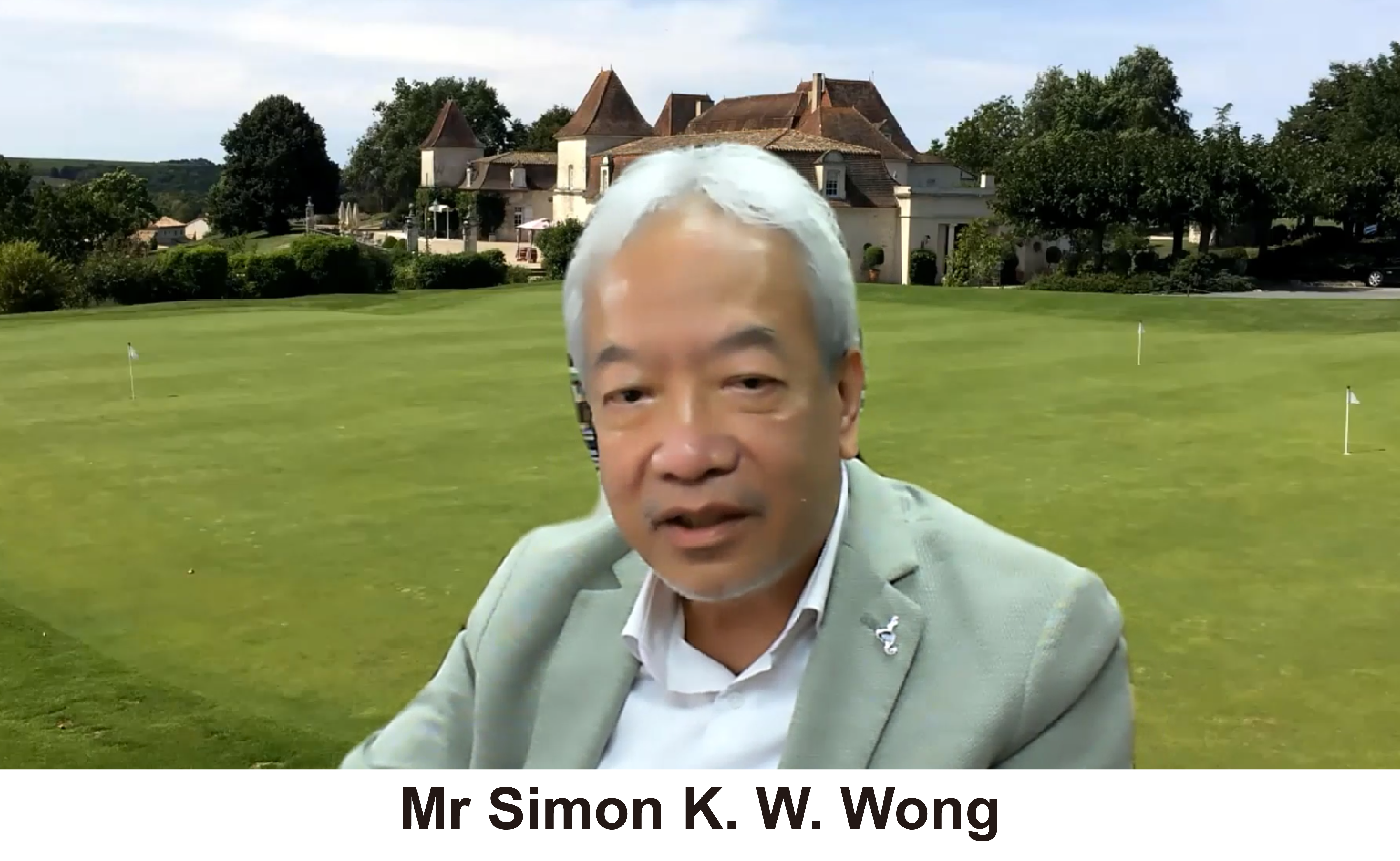 Mr Simon K. W. Wong
Mr Simon K. W. Wong
President, Hong Kong Federation of Restaurants & Related Trades | |
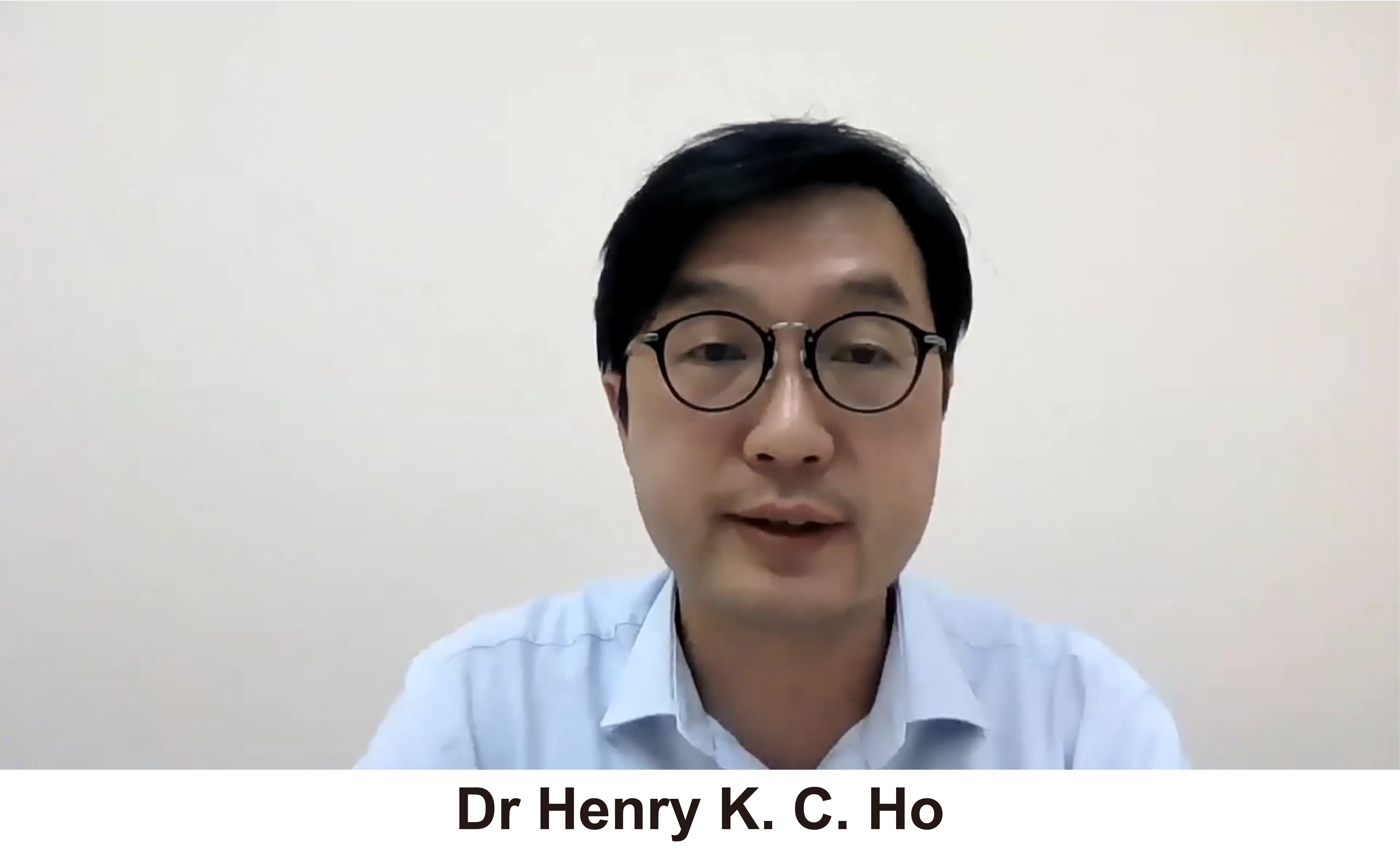 Dr Henry K. C. Ho
Dr Henry K. C. Ho
Vice Chairman, Hong Kong Professionals and Senior Executives Association | |
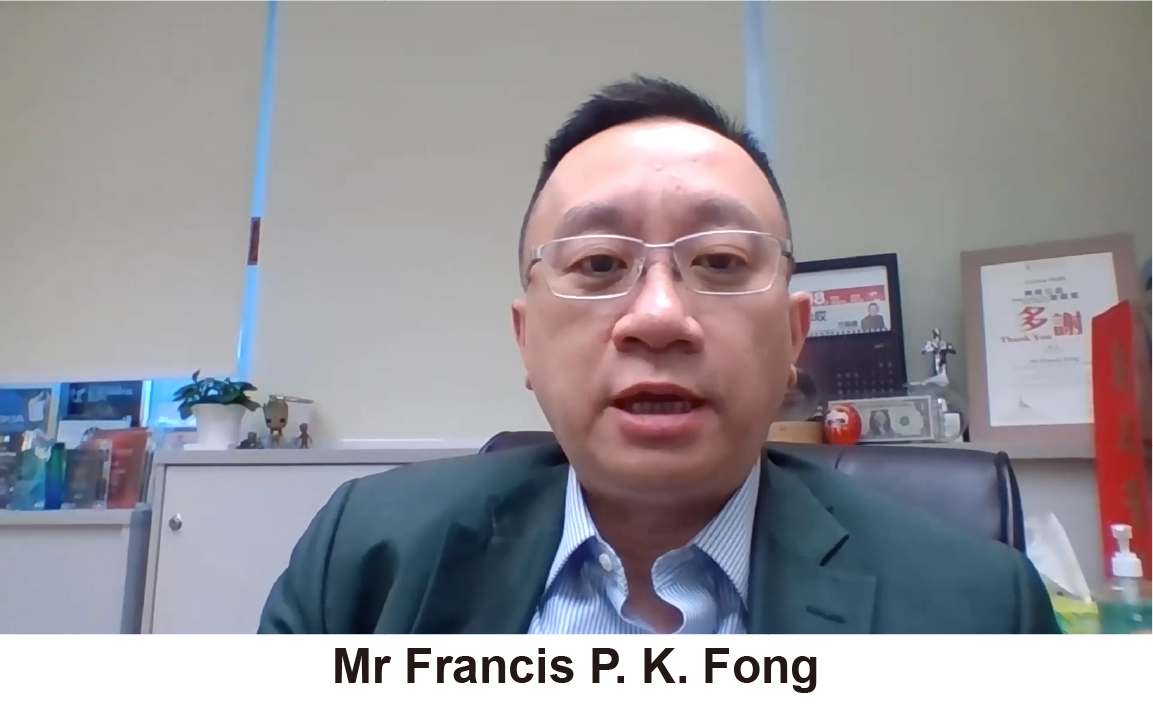 Mr Francis P. K. Fong
Mr Francis P. K. Fong
Honorary President, Convener of Fintech, Hong Kong Information Technology Federation | |
|
Moderator |
|
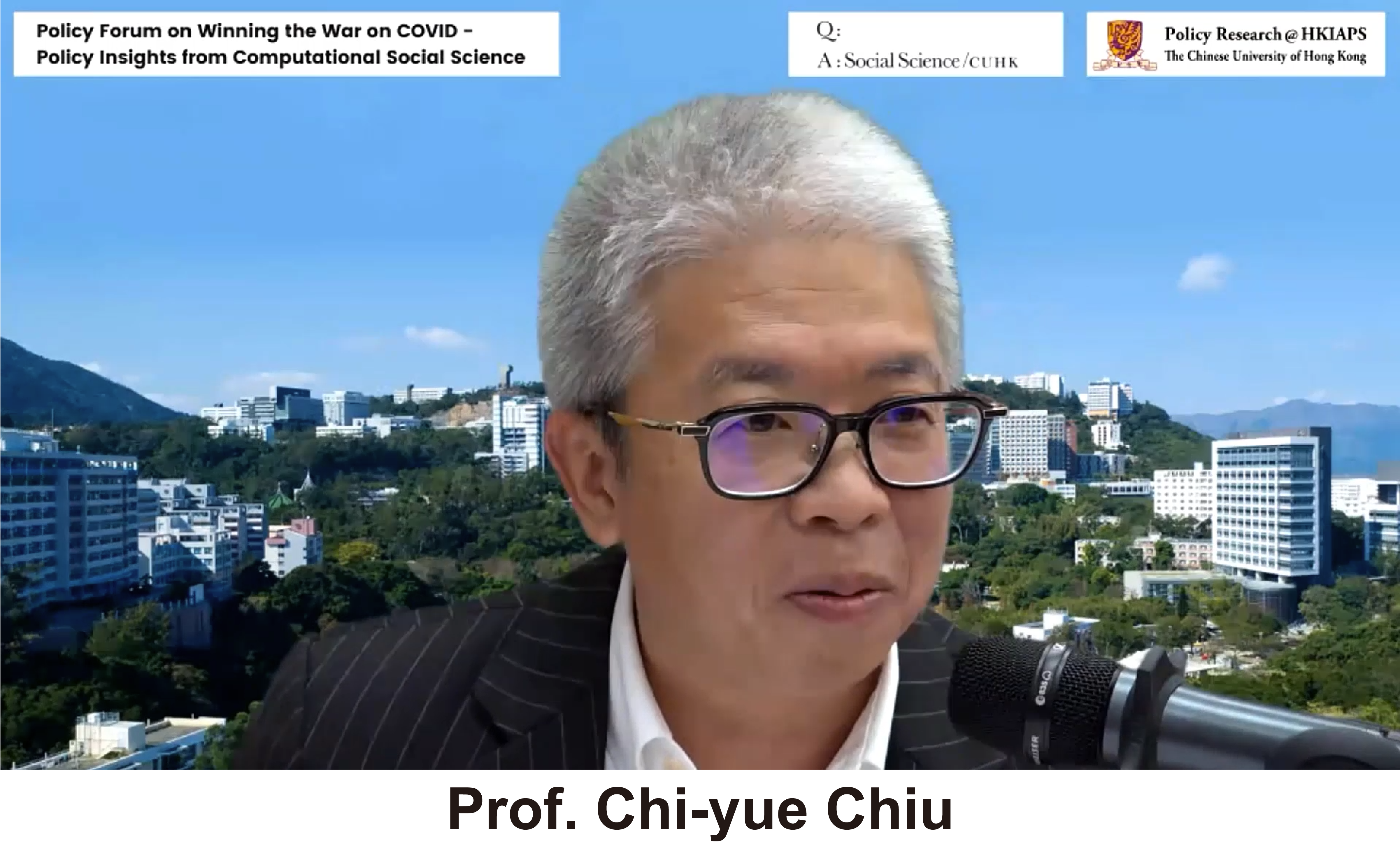 Prof. Chi-yue Chiu
Prof. Chi-yue Chiu
Dean, Faculty of Social Science, CUHK | |
|
Organizers
Faculty of Social Science, CUHK HKIAPS, CUHK |
|
|
The COVID-19 pandemic has changed our lives dramatically on the one hand and created actionable research and innovation opportunities on the other. To disseminate the policy impact of our colleagues’ innovative research in computational social science, a policy forum was organized to share the relevant results with policy stakeholders. The policy forum was divided into three parts: a keynote speech, a plenary session and a roundtable discussion. Ms Annie Choi gave the keynote speech in which she illustrated how the government uses big data analytics to facilitate its effort to control the COVD-19 outbreak. The government employed transportation data from Octopus and e-wristbands to trace potential and confirmed cases. Furthermore, big data analytics can also be adopted to reduce the spread of fake news, which is another essential strategy to containing the effects of the pandemic. The plenary session was given by three speakers from CUHK to share their latest research on the COVID-19 pandemic. Prof. Mei-po Kwan explained how geospatial technologies can be used for COVID-19 interventions as well as people’s willingness to share personal data to help reduce the spread of COVID-19 spread; Prof. Tony H.W. Tam discussed possible ways to optimize interventions to prevent and contain the COVID-19 pandemic in Hong Kong; and Prof. Ran Wei shared his insights about containing the spread of COVID-19 misinformation on social media. The roundtable discussion focused on how innovative technology policies can enhance current efforts to control COVID-19 infections and the potential social and economic concerns that could arise, with an emphasis on the implications for policy-making. Besides plenary speakers, four discussants from the fields of catering, information technology, logistics and supply chain and general professionals shared their viewpoints about how to use new techniques to help Hong Kong overcome this pandemic. In this discussion session, Prof. Kwan, Prof. Tam and Prof. Wei further elaborated on their ideas from their presentation. Prof. Kwan stated that the risk behind getting vaccinated could be a concern for the Hong Kong public, and so the government should provide more information on the side effects of the vaccines. Prof. Tony H. W. Tam commented that many factors led to the COVID-19 outbreak, and that the best form of protection is to try to optimize containment and intervention efforts. Prof. Ran Wei commented that the media plays an important role in delivering information, and said that the government should provide correct information from authorities or professionals to clarify misinformation. Mr Simon K.Y. Wong shared that the LSCM R&D Centre is actively engaged in tracking the status of people in quarantine and examining available relevant data to inform the public on vaccines and the pandemic. Mr Francis P.K. Fong shared the advantages and drawbacks of working from home and commented that the implementation of the vaccine programme could be improved. Mr Simon K.W. Wong stated that industry welcomes any measures to control the pandemic. However, industry also faces challenges in cooperating effectively with government measures due to different constraints. Dr Henry K.C. Ho expressed the belief that think tanks could act as an effective bridge between the government and the public. He also discussed the issue of Hong Kong’s low vaccination rate. Prof. Chi-yue Chiu also added that we should identify the factors that are causing the public to be fearful of the side effects of vaccines, and determine how the media have shaped these fears. He believed that communication is of supreme importance to achieving the collective good and to finding a solution to the low vaccination rate. About 150 participants attended the policy forum.■ Playback videos are available on CUTV platform: Keynote Speech: https://cutv.cpr.cuhk.edu.hk/detail/1391 Plenary Session: https://cutv.cpr.cuhk.edu.hk/detail/1392 Roundtable Discussion Session:https://cutv.cpr.cuhk.edu.hk/detail/1393
| |

